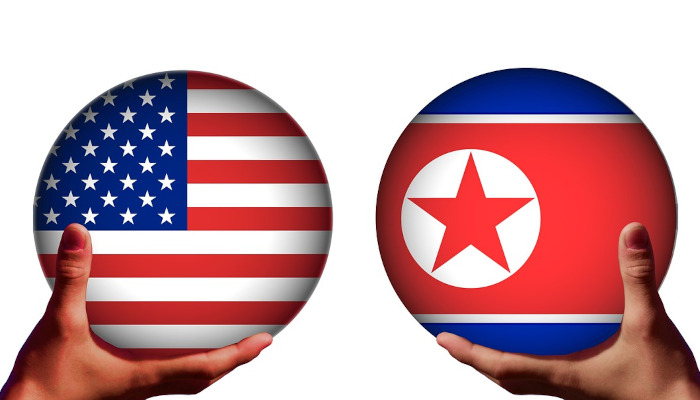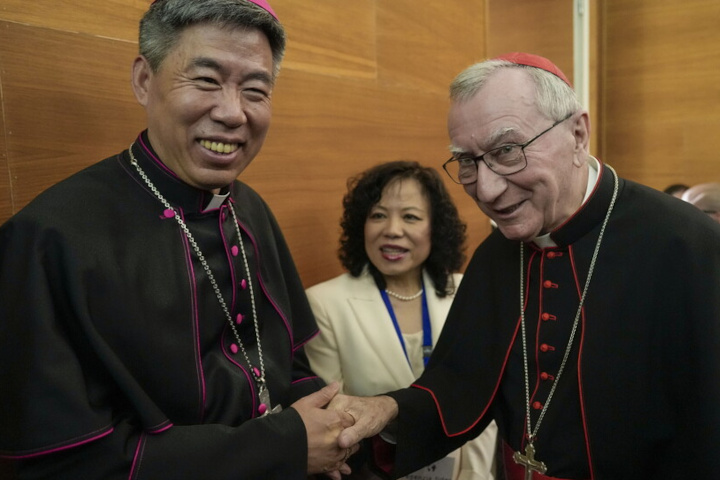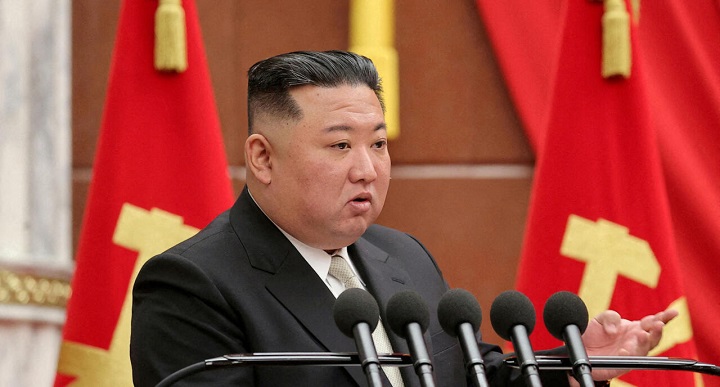
This week’s summit between North Korean leader Kim Jong-un and Russian President Vladimir Putin was of historic significance. It extended global tensions that began with the Ukrainian conflict two years ago to the eastern tip of the Eurasian continent, where the Cold War started in 1950. It could have unfathomable consequences. It also unravels years of patient and painstaking efforts to engage Pyongyang in seeking different solutions to an intractable problem – a paranoid, autocratic, yet nuclear-armed hermit statelet sitting at the doorstep of economic powerhouses like South Korea, Japan, and China.
There is a western twist here. Trying to recover czarist glory in Europe, Putin was obliged to bend the knee to Kim’s humiliating extravagances. The irony won’t be lost in Russia and might have a long-lasting impact. Russian history underlines the first Czars emerged by shaking off the Mongol yoke and conquering Asia.
Still, the result unfolding today is a military technology transfer from Russia to North Korea, which could escalate tensions in East Asia with unpredictable global fallouts.
Experts are particularly concerned. Ambassador Joseph DeTrani has sounded an alarm that things could spin out of control[i]. However, diplomacy may still have a chance. In a recently published memoir, DeTrani details how he experienced North Korea’s eagerness to open a dialogue with America, offering partial nuclear disarmament[ii].
For example, Jang Song-thaek, second in command in Pyongyang and the uncle and mentor of Kim Jong-un, who had just succeeded his father, was tried and executed in 2013. In the preceding months, he had personally sought Mr. DeTrani and offered the US an unprecedented deal for partial disarmament. The US weighed the pros and cons but eventually turned down the offer. Jang lost his life for it.
His tragic demise could be a reminder that political autism is not just a North Korean hallmark. Propelled by its domestic agenda, the US can be oblivious to its international obligations, driving countries away.
For instance, Muammar Ghaddafi’s Libyan experience is not forgotten in Pyongyang. In 2003, Ghaddafi gave up his program to produce weapons of mass destruction. It was the wake of 9/11 and the US attack on Iraq, where its leader Saddam Hussein was presumed to be manufacturing weapons of mass destruction, Ghaddafi bought himself just a short lease on life. In 2011, he was toppled and killed in a US-backed revolution.
North Korea followed the events and drew an eerie moral from them. Had Ghaddafi or Saddam possessed nuclear weapons, the US would not have interfered with them. Therefore, the North Korean nuclear program is seen as a life policy for the regime, and it’s steadfast about it. Yet, DeTrani argues, this should be even more reason to engage and talk to North Korea and try to find ways forward.
The North Korean maze should lead to a profound rethinking of US global policy. Great power comes with greater responsibilities that can’t be ignored or spun away from overnight. Had Ghaddafi met a better fate, and had Saddam and Iraq not been turned into ashes, US diplomacy would have stronger arguments with Kim.
This context is not lost on larger, more complex countries like Iran, Russia, or China. Their analysts may have reasons to doubt the US’s real long-term commitments.
Domestic upheavals
Meanwhile, North Korea appears to be undergoing seismic changes that could further impact foreign policy. At the beginning of the year, North Koreans were asked to take loyalty oaths to their leader Kim Jong-un. A ceremony to that effect is believed to have occurred on January 8th to celebrate the leader turning 40. In April, the country stopped marking the “Day of the Sun,” the birth anniversary of its founding leader, Kim Il-sung.
Russia, which supported the grandfather eight decades ago, now pleads for his grandson’s aid. All of this projects 40-year-old Kim to a larger stage than the regime’s founder; in fact, there are indications that Kim III is steering his “kingdom” in a different direction.
The real number two in the regime is his sister, Kim Yo-jong (born September 26th, 1987), who emerged into the limelight in 2020 when her brother mysteriously disappeared amid rampant rumors about his health.
The heir apparent is not male but “Respected Daughter” Kim Ju-ae (possibly born in 2012–2013). Kim Ju-ae is believed to have an older brother born in 2010 and a younger sibling of unknown sex born in 2017. Both seem to have been bypassed in the succession choice. The presence of two women in the top leadership is a rare event in male-dominated East Asia. Kim III’s assertion of power could indicate a significant reshuffle in the North Korean power structure.
The North Korean constitution recognizes the rule by “blood right” to the Kims. There are semi-religious rituals performed in honor of Kim’s long-dead father and grandfather. The entire North Korean procedures and trappings remind one of Central Asian shamanism, where women are believed to command more power than men.
This might indicate that Kim Jong-un is ready for more theatrics and surprises, of which the world and the US can only guess.
[i] https://www.thecipherbrief.com/column_article/a-dark-path-ahead-for-north-korea
[ii] The North Korea Threat: Intelligence and Diplomacy – a Personal Memoir, National Institute For Public Policy, May 2024










South Korea was a bloody dictatorship from the installation by US of Singman Rhee as its president in 1948 until the late ‘eighties. After many provocations North Korea invaded the South in 1950 and its lightly armed forces occupied nearly all of it because of the support by the population. After which US reintroduced its armed forces and reconquered the South. The local US general is still the commander in chief of the South Korean armed forces.
Because of the threat from US and its refusal to treat it as a normal country – and the need of Russia ans China not to quarrel with US about it – North Korea developed nuclear weapons. The effort by president Trump to normalize relations was sabotaged by his own administration.
US is weakening fast. Its navy is unable to defeat Yemen. Its maintenance of an illegal ‘protectorate’ over Taiwan is nearing its end.
The illegal ‘protectorate’ over Ukraine established by the coup of 2014 has now resulted in a war US is loosing. Ukraine cannot find and train enough soldiers to replace its losses that are much higher than those of Russia. It lacks adequate artillery, air defense and aircraft and cannot be sufficiently supplied.
The US has a much smaller economy than China, not just according to the World Bank. A recent article in Asia Times shows that the situation is worse for US: https://asiatimes.com/2024/06/whats-the-real-size-of-chinas-economy/.
And according to World Bank the next two largest economies in the world are India and Russia. Notice that three of the four largest economies belong to the BRICS group.
The success of African countries to drive out French and US forces with military support from Russia and the success of BRICS+ in attracting many more countries are an indication of the political power of China AND Russia. Saudi Arabia is one of the new members mainly because of its relations with Russia.
South Korea has a fertility of 0.7 children per woman and so is likely a very unhappy country. More children are born in North Korea with about half the population than in the South.
In these fast changing circumstances North Korea will become accepted as a normal country and its increased importance will make it more difficult for US to start a war with China over Taiwan, which advances reunification and will lead to a further increase of China’s economy.
The world is a different place from that pictured by Mr Sisci.